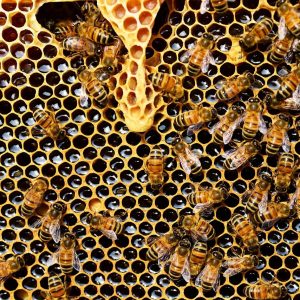Bees in Italy face a new challenge. The Vespa Orientalis, a hornet native to the Mediterranean, has become a significant threat.
The hornet has destroyed between 35,000 and 40,000 beehives in Lazio, Campania, and Molise. Riccardo Terriaca, general secretary of Miele in Cooperativa, an association of beekeeping organizations, raised the alarm.
The Vespa Orientalis is not an invasive species. However, its behaviour has changed. Climate change and altered habitats have made the hornet more aggressive. This shift has led to an expansion of its range. It now competes with bees, weakening colonies and reducing honey production.
The Vespa Orientalis is venomous and can grow up to 3 cm. It preys on bees in flight and often invades beehives. This predatory behaviour has led to higher bee mortality. Beekeepers are facing increased costs to care for weakened hives, such as emergency feeding.
The hornet’s spread is a growing environmental concern. The decline in bee numbers threatens agriculture, as bees are crucial for pollination. Many beekeepers could lose their businesses. The ecosystem that depends on bees is at risk as well.
Hornet behaving like an alien species
Although native to Italy, the Vespa Orientalis now behaves aggressively, like an alien species. Laura Bortolotti, a researcher at Crea AA – Agriculture Environment, believes climate change has altered its behaviour. These changes have allowed the hornet to thrive at the expense of bees.
The Vespa Orientalis is also becoming a public health concern. It has spread into urban areas, where it can pose a risk to humans. The hornet defends its nest and can sting if threatened. Stings cause pain, swelling, and sometimes allergic reactions. However, the hornet tends to move away in winter, lowering the risk to humans.
The Vespa Orientalis underscores the need for urgent action. Researchers and beekeepers must find ways to protect Italy’s bees. Without intervention, the sustainability of beekeeping businesses and ecosystems is at risk. It is not just the hornet which is an issue, in 2022 the honey harvest was halved due to extreme weather.





